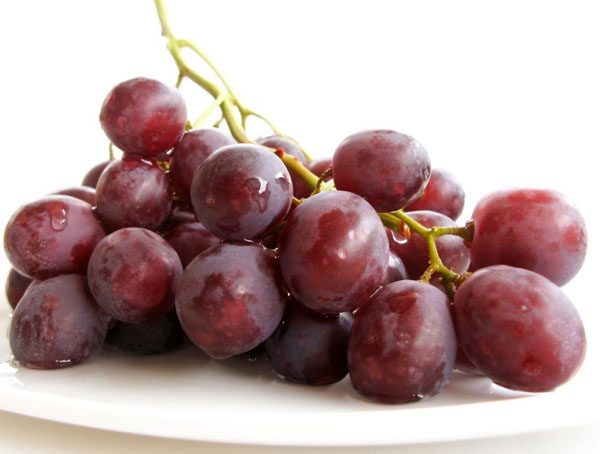For those suffering from headaches and migraines, avoiding certain types of foods is crucial, as they can trigger pain, scientists say.
Among the foods to avoid, red grapes are the first fruit that patients should refrain from consuming. According to researchers, this fruit contains a high level of tyramine, a natural amino acid formed from the breakdown of proteins in food. This acid can cause an increase in blood pressure, leading to headaches.

In addition to red grapes, individuals experiencing headaches and migraines should carefully consider consuming the following foods:
- Cured or smoked meats.
- Aged cheese.
- Citrus fruits such as oranges, lemons, and grapefruits.
- Sauerkraut.
- Soy sauce.
- Red wine and certain types of beer.
Previous studies have indicated that tyramine found in red grapes can negatively affect certain antidepressants, including MAOIs. Patients taking these medications should consult their doctors about dietary restrictions.
Foods That Help Alleviate Migraines
Water
Staying hydrated is essential for all systems and cells in the body. Water also helps reduce headaches; even mild dehydration can lead to headache symptoms. A study published in the American Journal of Clinical Practice Review found that adequate hydration is a simple way to alleviate or prevent headaches.
Fruits and Vegetables
Fruits and vegetables are rich in vitamins, minerals, and antioxidants. Antioxidants are compounds that help reduce oxidative stress in cells and combat the harmful effects of free radicals.
Research titled “The Use of Antioxidants in the Treatment of Migraines” from 2020 in the journal Antioxidants noted that oxidative stress seems to play a role in triggering migraines, and certain antioxidants may help reduce or prevent migraines.
Nutritious foods include leafy greens like kale, spinach, and collard greens, brightly colored vegetables such as carrots and bell peppers, as well as ginger, garlic, and radishes. Berries like blueberries, raspberries, and strawberries, along with mushrooms such as oyster, shiitake, and maitake can also help prevent migraine recurrence.
Herbal Tea
Herbal teas can help alleviate headache symptoms due to their hydrating effects and potential pain-relieving properties. A cup of ginger tea may help reduce the severity of migraines.
Additionally, chamomile tea can assist in addressing issues like insomnia and anxiety. Theoretically, its calming effects may help reduce stress-induced headaches.
Moreover, peppermint tea helps relieve congestion and sinus pressure, thus alleviating sinus headache pain.
Caffeine-Containing Foods
A small amount of caffeine can benefit certain types of headaches. Caffeine has natural vasoconstrictive properties, which can counteract headache effects and alleviate symptoms. Some foods that naturally contain caffeine include coffee, sports drinks, and chocolate.
However, individuals should be cautious not to consume too much caffeine, as it can also trigger headaches in some people. Therefore, it’s essential to listen to your body’s reactions before and after consuming unfamiliar foods.

Caffeine can help with certain types of headaches. (Photo: Freepik)
Seeds and Nuts
According to Sarah Thomsen Ferreira, a nutritionist at the Functional Medicine Center of the Cleveland Clinic in Ohio, USA, magnesium deficiency is one of the common causes of persistent headaches. Prioritizing magnesium-rich foods in your daily diet is one of the best ways to prevent headaches. Magnesium is abundant in flaxseeds, sprouted pumpkin seeds, and chia seeds, which are all excellent sources. Pumpkin seeds are also high in fiber, helping to prevent constipation, which can sometimes accompany migraines.
Yogurt
Many people experience migraines due to digestive issues such as constipation. In this case, plain yogurt, which contains probiotics, can address both problems by promoting gut health and providing hydration. Those with migraines should consider consuming almond yogurt or cashew yogurt.


















































